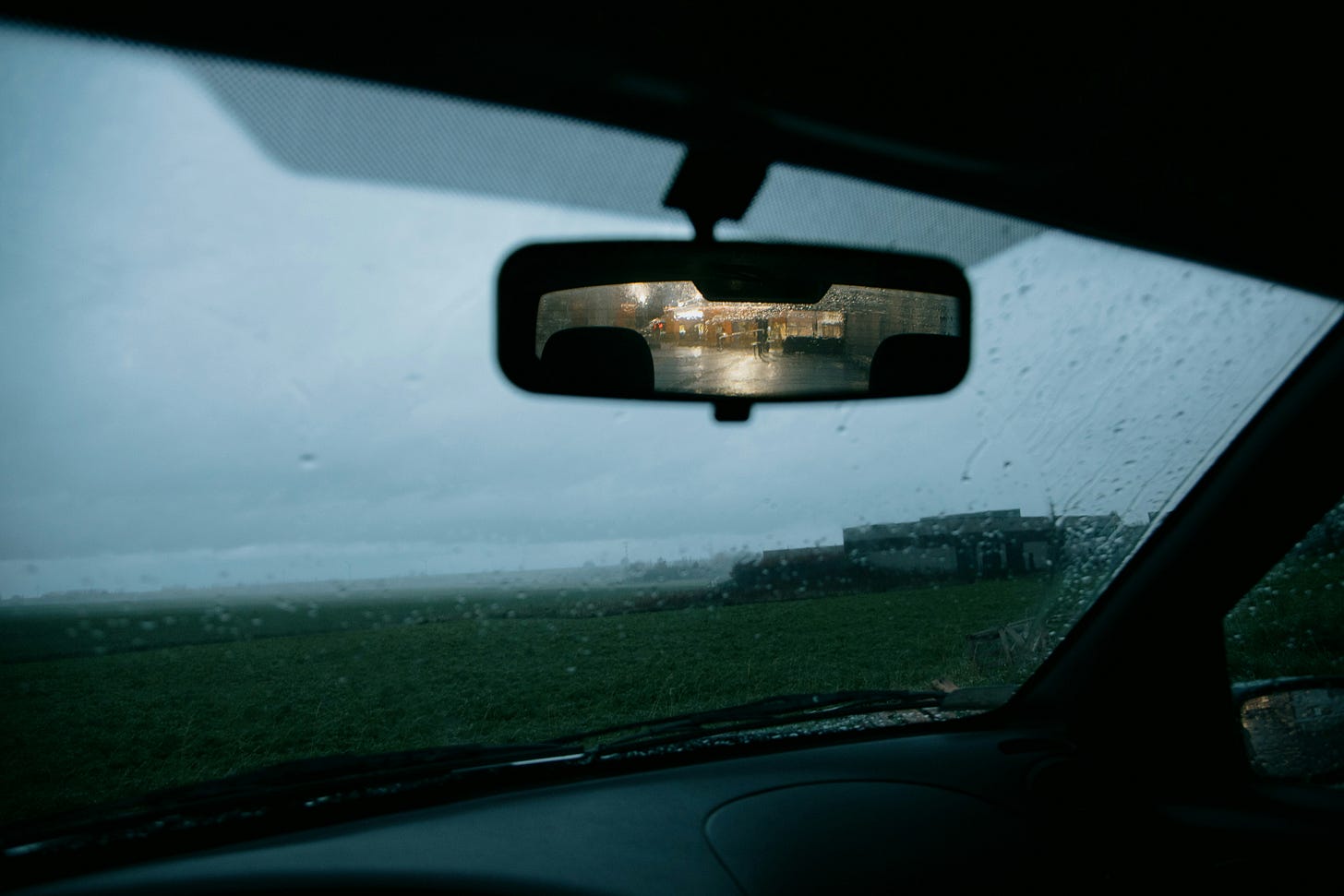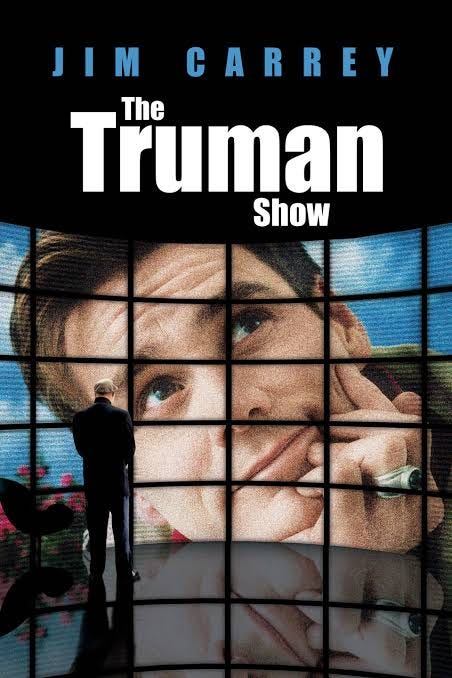Life unfolds forwards. A story is told backwards. To tell you my story is to describe what I see in the rear view mirror, while keeping my foot on the accelerator pressed. Did that nice scenery already pass, or are we still driving through it? Does this rocky patch mean we are close to the riverfront or are we headed to the edge of the cliff? I guess I’ll have to get back to you on that.

During our MBA convocation, one of the speakers told us a fable. Through scratchy speakers in a windy tent full of impatient, hopeful 20 year-old MBA graduates standing on the cusp of corporate misadventures, he told us the tale of a farmer who had good rain one year. He made a good harvest. The villagers congratulated him saying, “That is such good luck!”
The farmer replied, “Maybe it is, maybe it isn’t.”
On his way to the market, all his grain fell into the river.
The villagers commiserated, “Oh, that is such bad luck.”
The farmer replied, “Maybe it is, maybe it isn’t.”
Fish swarmed to eat the grain, the farmer caught some and sold them in the market.
“That is clever!”
“Maybe it is, maybe it isn’t.”
On his way back home, the farmer got robbed.
“What rotten luck!”
“Maybe it is, maybe it isn’t.”
And so on.
Zero points for narrative arc, but looking back at over two decades of ups and downs of jobs, not to mention life, since we heard the tale, full marks for accuracy!
How do we tell our story while we are still living it? Is the protagonist doing the narrating or is she focussing on the doing that she is supposed to? Or is she too multi-tasking, the magic mantra by which we all seem to be hurtling through our lives these days? Attention-purists like me jump in here and ask - if you say you’re doing both are you really doing either? Because we know now that multi-tasking is a misnomer, all our brains can do it multi-switch, so we are back to square one.
So, how are we to tell stories? What happens to our lives while we are telling stories? Is it akin to pressing a pause button in out minds while the world goes on turning?
I was enthralled by The Truman Show. Of course by the lurking feeling of being watched, of this whole thing being a big drama, a cosmic conspiracy against me, the feeling that people around me know something they weren’t telling me. And of course for the adorable Jim Carrey. But also, more pressingly, a logistical question - would Truman ever watch his own recordings? If so, what be recorded of those moments - him watching his past recordings? (Aaand the forever loop is back!)
Meaning to say, does telling stories come at a cost to the story teller? Say we’re on a ferris wheel and every once in a while, we press a mental pause button and stop mid-air to describe the view. But the wheel doesn’t pause, so while we are narrating what the view looked from the top, we’re probably somewhere in the middle whooshing to the bottom. We miss part of the ride. Is it worth it?
Could telling stories count as living too? Is it a good life, sitting with our pen and paper, observing our world from the outside as it goes on turning? Why do we do this?
Perhaps because we remember stories we were told from those who went before us, stories that got us excited about the ride and now that we’re on it ourselves, we want to tell our versions hoping that someone might hear, someone who is contemplating getting off might be persuaded to stay on for a little bit longer, someone who is holding in a scream might hear ours and join in, someone who is about to miss that gorgeous sunset can be persuaded to look up from their phone and enjoy the moment, even if it means that we miss some of it, but that’s alright because we saw a glimpse and we might live to see it again. “Is it worth it?” they ask.
Maybe it is, maybe it isn’t. Let me get back to you on that.





Beautiful essay!
And if I may, we also tell stories because we can revisit that moment and view it from different angles. It's always a revelation. There is always more than what we knew about it.
Gorgeous Nidhi! Gorgeous!